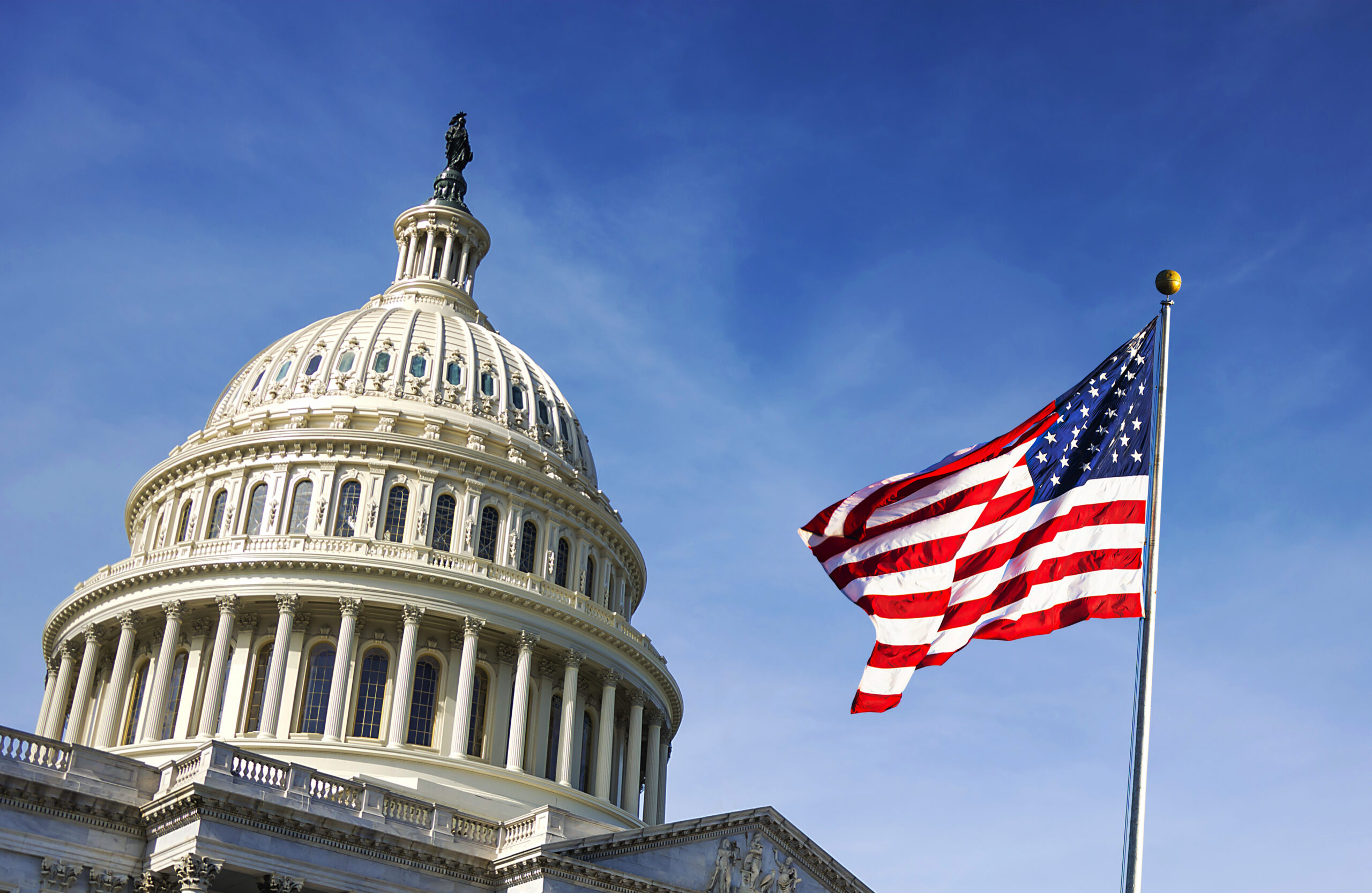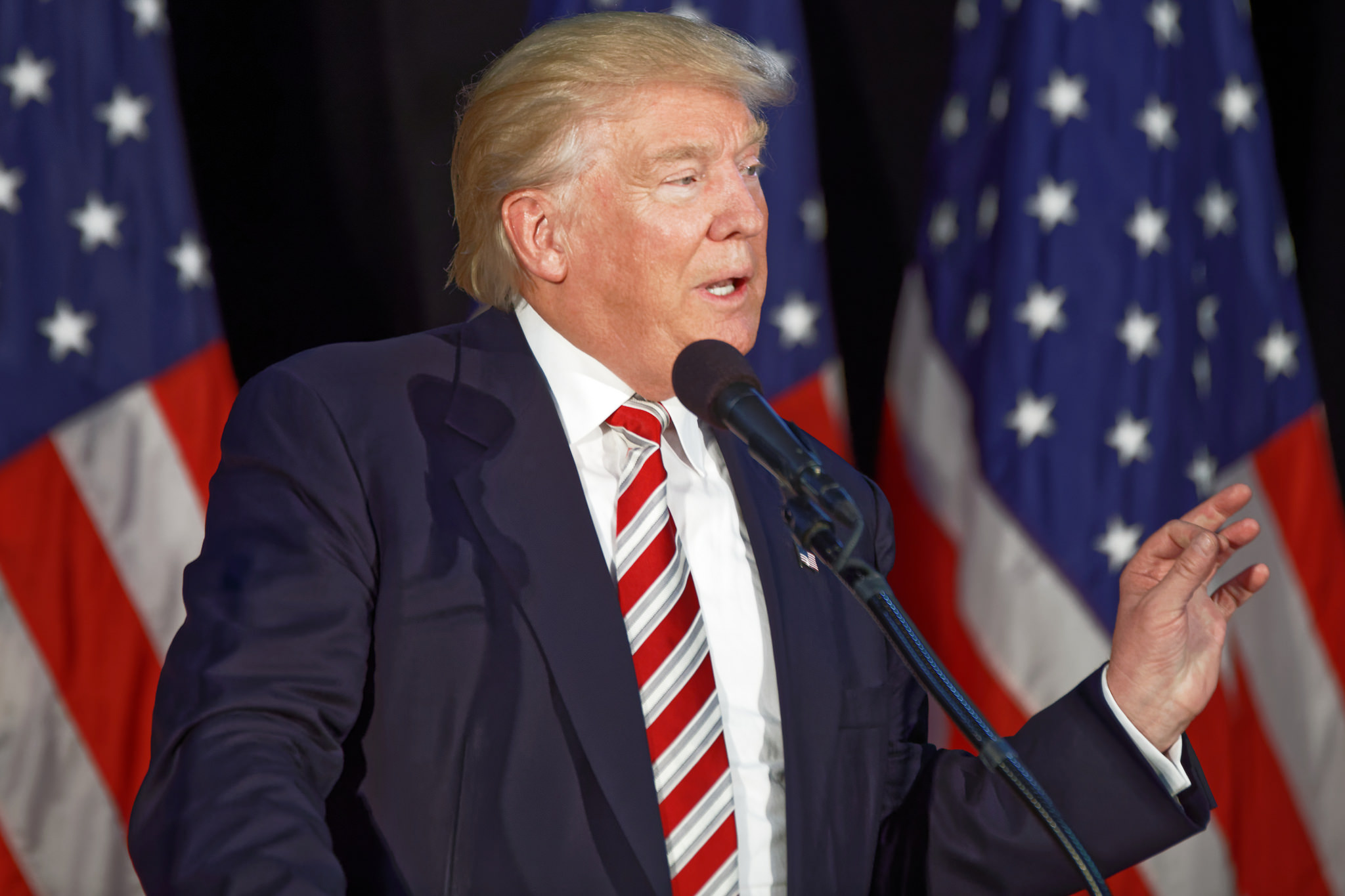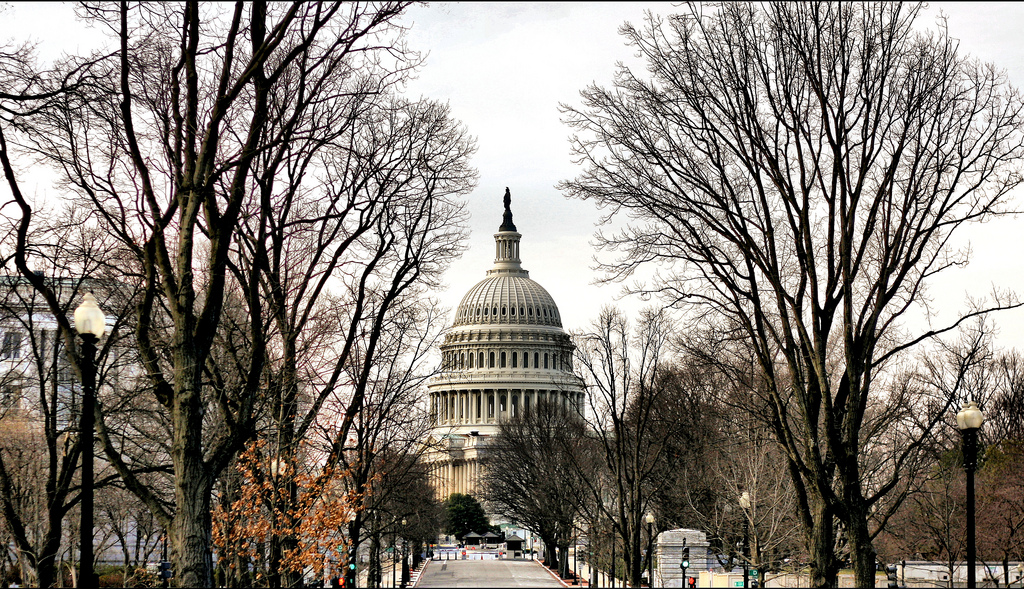In a move to revoke plea agreements struck under the Biden administration with Guantanamo Bay …

Virginia's Public Square
Virginia's Public Square

In a move to revoke plea agreements struck under the Biden administration with Guantanamo Bay …

Senate GOP Leader Mitch McConnell (R-Ky.) was reportedly among the four Republican senators to sink …

Senate Majority Leader Mitch McConnell will introduce legislation next month to raise the age limit for people to purchase tobacco products and vaping devices from 18 to 21, but it will have exemptions for those who serve in the military.

Bucking back at the Republican-controlled Senate that voted to reject the national emergency declaration to secure funding to construct hundreds of miles of wall at the southern border, President Donald Trump issued his first-ever veto on Friday. Flanked by Attorney General William Barr and Homeland Security Secretary Kirstjen Nielsen, the commander in chief added that Congress’ rebuke “would put countless Americans in danger.”
The U.S. Senate blocked the president’s emergency declaration in a 59-41 vote on Thursday afternoon, with 12 Republicans joining the minority Democratic bloc.
“The Democrat-sponsored resolution would terminate vital border security operations by revoking the national emergency issued last month,” the president said in his remarks. “It is definitely a national emergency. Rarely have we had such a national emergency.”
Trump said he vetoed the “reckless resolution” because Congress’ action was a “vote to deny the crisis on the southern border” and was a “vote against reality.”
“It’s against reality. It is a tremendous national emergency. It is a tremendous crisis,” the president added.
Although lawmakers, including some Republicans, have criticized President Trump’s use of his national emergency powers to gather nearly $8 billion in funding from pockets of federal money dedicated to other projects, the Department of Justice led by recently-confirmed Attorney General Barr, set forth a robust defense of the president’s authority to do so in a letter sent to Senate Majority Leader Mitch McConnell (R-KY) earlier this month, CNN reports.
“The President acted well within his discretion in declaring a national emergency concerning the southern border,” wrote Assistant Attorney General Stephen Boyd, laying forth a legal basis for the proclamation under the National Emergencies Act and additional statutory authorities.
“The President’s emergency Proclamation reasonably described the current situation as an ongoing ‘border security and humanitarian crisis,'” he added. “The crisis at the border…may qualify as an emergency even though it, too, is not entirely new.”
The resolution will now be sent back to the U.S. House of Representatives, but House Minority Leader Kevin McCarthy (CA-23), a staunch Trump ally, has reiterated that Congress’ lower chamber will not muster the two-thirds vote necessary to overturn the president’s veto.

If both houses of Congress initially approve the measure, it is unlikely they will be able to garner the two-thirds majorities in each chamber to override President Trump’s inevitable first-ever veto.

On Friday morning in the Rose Garden at the White House, President Donald Trump announced that a “deal has been reached” to reopen the 25 percent of the federal government that has been closed since December 22, 2018. The sudden change in momentum came as major airports are experiencing long delays and over 800,000 federal workers are getting ready to miss a second paycheck.
President Trump pledged to sign a bill on day 35 of the shutdown that would reopen the government for three weeks, until February 15. The funding package, however, will not include any money for the proposed U.S.-Mexico border wall.
On Thursday, Trump relayed to reporters that he would support “a reasonable agreement” to reopen the government as the impasse between the Republican-controlled Senate and the Democrat-controlled House of Representatives has reached extreme divisiveness. That same day, Senate Majority Leader Mitch McConnell (R-KY) scheduled votes for two likely failing plans to reopen nine federal agencies.
Under the Republican plan, $5.7 billion would be allocated to building the U.S.-Mexico border wall (or barrier) in “strategic locations” and, per President Trump‘s remarks, provide for a three-year extension of protections for over 700,000 undocumented immigrants shielded from deportation under the Obama-era Deferred Action for Childhood Arrivals (DACA) program. Trump’s funding request also includes $800 million for humanitarian assistance, $805 million for drug detection technology, 2,750 more border agents and law enforcement officers, and 75 more immigration judges.
Democrats, on the other hand, have continued to work on a package that would ignore the president’s demand for $5.7 billion for a southern border wall and would instead allocate funds for other ideas aimed at protecting the border, what they call a “21st Century plan.” Although the Democratic Party’s border security plan and its costs remain a work in progress, it is said to include money for scanning devices and other advanced technological tools to bolster security at certain ports of entry at the southern border, as well as money for additional border agents and immigration judges.
According to a report from AP, the Senate first rejected the Republican plan, garnering just a 50-47 vote for the measure, 10 shy of the 60 votes needed. Minutes later, senators voted 52-44 for the Democratic alternative, eight shy of the 60 votes needed.
Last night and this morning, at least five Republican Senators called Trump to urge him to reopen the government, having the upper chamber consider his $5.7 billion request for border wall money through different legislation.
With the government set to reopen for the next three weeks, the president added in his speech that a bipartisan contingent of lawmakers from both the House and Senate will meet to develop a border security funding proposal for the Department of Homeland Security.

As the partial government shutdown rolls through day 30, President Donald Trump rolled out a plan this weekend that includes funding for the proposed southern border wall, teamed with revitalized protections for certain groups of undocumented immigrants. While the commander in chief’s olive branch was praised by those near the political center, it did draw ire from conservative immigration hard-liners and Democrats, who called the measure a “non-starter.”
The plan includes a three-year extension of protections for over 700,000 undocumented immigrants shielded from deportation under the Obama-era Deferred Action for Childhood Arrivals (DACA) program. In exchange, $5.7 billion in funding would be dedicated to the U.S.-Mexico border wall.
Nevertheless, Trump has backed off of his hundreds of miles of wall request, now proposing only a strategic deployment of steel barriers at high priority locations. His funding request also includes $800 million for humanitarian assistance, $805 million for drug detection technology, 2,750 more border agents and law enforcement officers, and 75 more immigration judges, according to The Hill.
Senate Majority Leader Mitch McConnell (R-KY) has promised Trump that his package will be brought to the floor of the upper chamber this week.
For the few Republicans and conservative talking heads that called the president’s plan amnesty, he responded to those claims via Twitter.
No, Amnesty is not a part of my offer,” Trump said. “It is a 3 year extension of DACA. Amnesty will be used only on a much bigger deal, whether on immigration or something else.
Regardless, Speaker of the House Nancy Pelosi (CA-14) and Senate Minority Leader Schumer (D-NY) signaled that they would not take up the deal.
Accosting the opposition party and charging them to take the deal to re-open the federal government, the president added, “Nancy Pelosi and some of the Democrats…don’t see crime & drugs, they only see 2020 – which they are not going to win…They should do the right thing for the Country & allow people to go back to work.
Considering congressional Democrats have refused to take up Trump’s plan, they have shown that pride is more important than compromise – even if it means 800,000 federal workers continue to be furloughed as 25 percent of the U.S. government remains closed.

Senate Majority Leader Mitch McConnell (R-KY) recently said, “I don’t think he [President Trump] should fire Mueller and I don’t think he’s going to,” following calls from senators to draft legislation to protect Special Counsel Robert Mueller in the midst of the Russia investigation.

As the legislative agenda slows down amid the Easter recess, the Republican leadership is looking to infrastructure to bolster favor in midterm elections.

“I imagine many Democrats were celebrating last night. I hope they consider what they are celebrating. The American people are hurting, they need relief, and it’s regretful that our Democratic colleagues decided early on that they did not want to engage with us seriously in the process to deliver that relief. But that doesn’t have to be the end of the story…”
— U.S. Senate Majority Leader Mitch McConnell
18 July 2017
The U.S. Senate is a fickle thing. 50 votes can get you there if you have the tiebreaker… but in a body where Republicans have a 53 seat majority, if three go one way or three go the other? Things get rough.
Consider for a moment that we are no better off than we were with Obama in the White House and Democrats in control of the U.S. Senate. Consider further that we are one or two votes away from Obamacare repeal in the U.S. Senate, even though they passed a much stronger bill in 2015 that had the added luxury of the knowledge that Obama would veto the plan…
Meanwhile, the Democrats are reveling in the fact that people are being hurt by Obamacare
Once again, we find ourselves faced with two — perhaps three — realities:
FIRST, that legislation is a bloody process, as it was designed to be by the Founding Fathers.
SECOND, that a Republican majority is not necessarily a conservative one.
There’s a third reality to face in all of this, one where McConnell’s remarks (and Chuck Schumer’s nastiness afterwards reveal) — this is indeed the Democrats’ mess. They crafted Obamacare. They designed it to fail. Once again Republicans have taken it upon themselves to fix a failing social program. Isn’t there some truth to President Trump’s claim that Republicans should just “let it fail” and then sweep up the pieces afterwards?
Of course, this is the entire debate over “repeal and replace” to begin with. Repeal was never enough, even with the two-year concession that Senator Rand Paul included to delay the actual repeal (still not enough for the trio of Republican Senators on the left). What replaced Obamacare had to be something that lowered costs, increased coverage, and prevented people from slipping through the cracks.
Is it a unicorn we are chasing?
Perhaps so… and perhaps Republicans were better served chasing smaller tag items such as tax reform, immigration enforcement, and infrastructure improvement — three things the GOP is united on; three issues where the White House is willing to do the heavy lift.
Meanwhile, the Democrats are reveling in the fact that people are being hurt by Obamacare — more than happy to let it fail, more than happy to watch as Americans pay more than they can afford for healthcare they never asked for, more than happy to hang around until they get the insurance company bailout that Senator Feinstein wanted (in the name of bipartisanship) just to keep a failing system propped up for another five years.
The good news is this: Republicans are tangibly close to getting something passed in the U.S. Senate — literally one or two votes. If McConnell gets a commitment and gets to 50 votes? Expect a quick vote in the U.S. Senate and a march to a reconciliation bill in order to get the package back in front of the U.S. House.